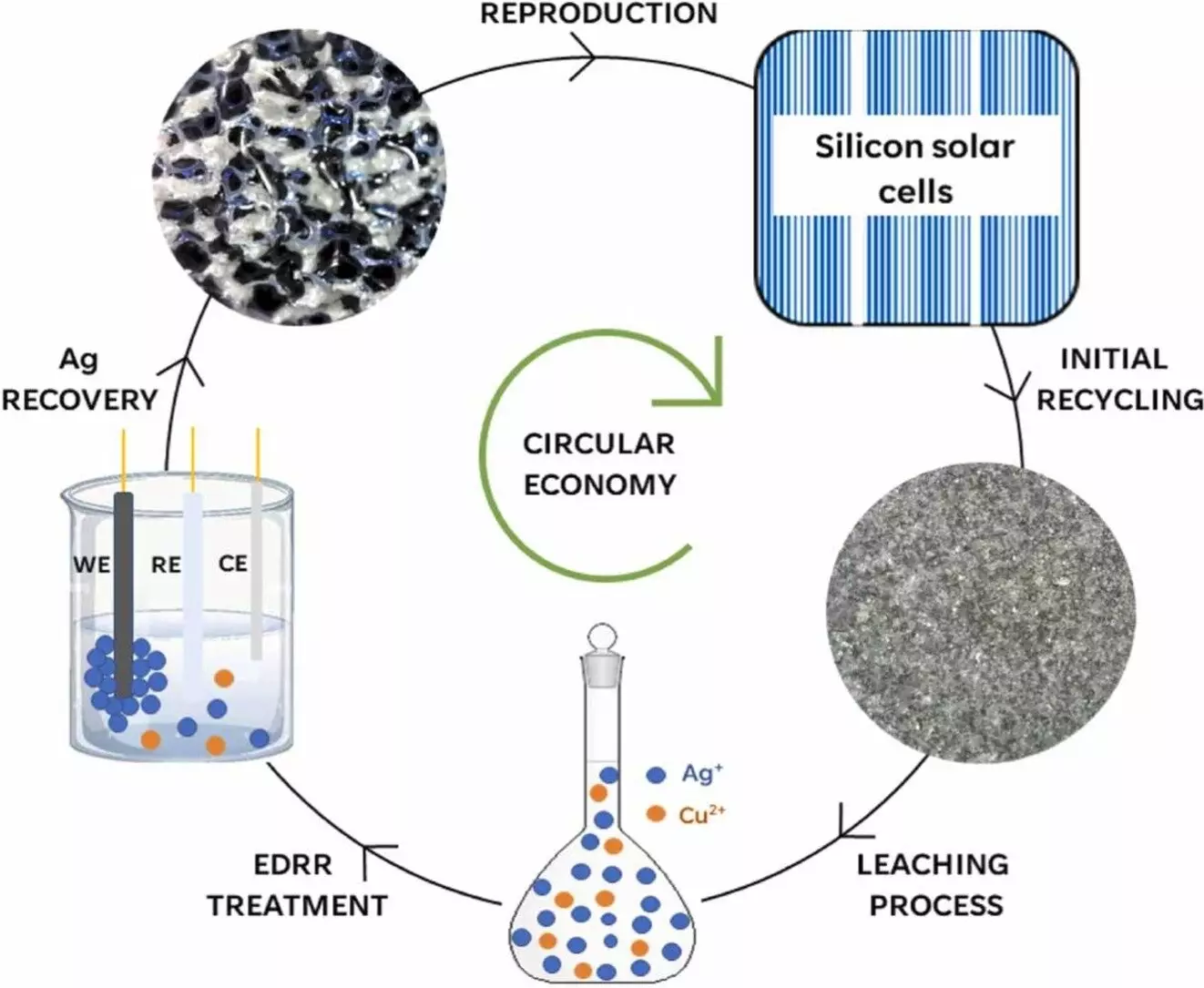The push towards renewable energy solutions, such as solar power, has brought to light new environmental challenges. One of these challenges is the recycling of solar panels once they reach the end of their lifecycle. Traditional recycling methods have struggled to efficiently extract valuable materials, such as silver, from these panels. However, a recent study published in Environmental Technology & Innovation presents a novel approach that may revolutionize the recycling process.
A team of researchers from Italy has developed a cost-effective method to retrieve silver from dead solar panels. By utilizing a base-activated persulfate along with ammonia, the researchers were able to successfully separate the silver from the electrical circuits in the panels. Through a series of experiments, they determined the optimal conditions for the reaction, resulting in the recovery of 85% of the silver content in the samples. Subsequent electrodeposition-redox replacement further increased the recovery rate to an impressive 98.7%.
The Process
The key to the success of this method lies in the precise combination of ammonia concentration, potassium persulfate amount, and reaction time. By fine-tuning these variables, the researchers were able to achieve high levels of silver separation without damaging the copper components in the circuits. The use of copper oxide as a protective layer during the reaction further enhanced the efficiency of the process, preventing leaching of the copper.
This breakthrough in silver retrieval from solar panels has significant implications for the future of renewable energy technology. By developing a more sustainable and effective method for recycling solar panels, researchers are paving the way for a more environmentally friendly approach to harnessing solar power. Not only does this method reduce waste and promote resource efficiency, but it also highlights the potential for innovation in addressing the challenges of transitioning to clean energy sources.
The development of a highly efficient silver retrieval method for dead solar panels represents a major step forward in the field of renewable energy technology. By overcoming the challenges associated with recycling valuable materials from solar panels, this research opens up new possibilities for the sustainable management of electronic waste. As the transition to solar power continues to accelerate, innovations like these will be crucial in shaping a more sustainable future for energy production.


Leave a Reply